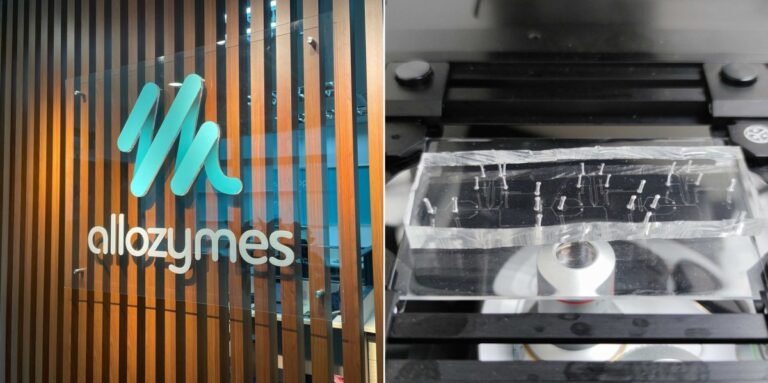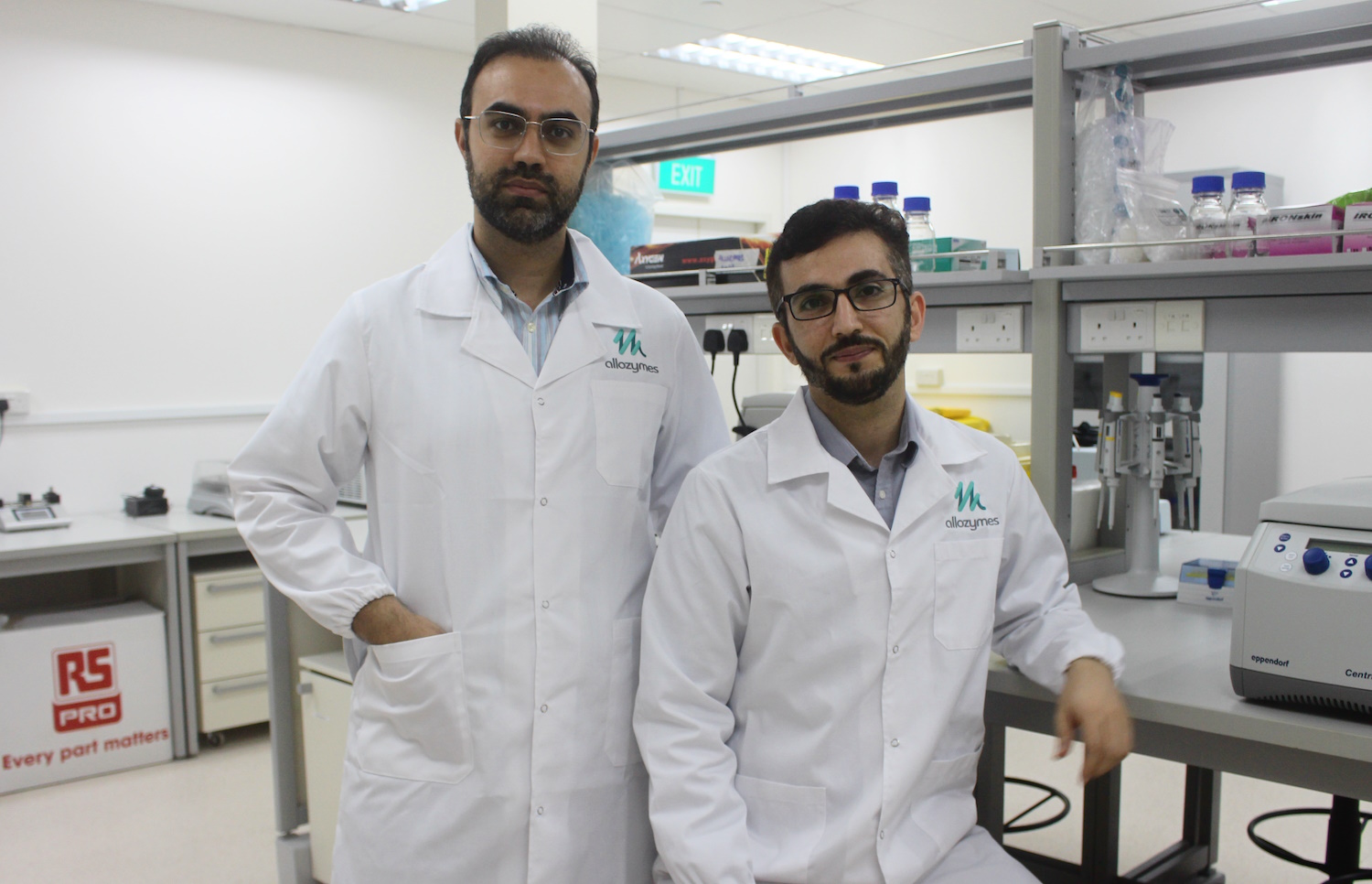Allozymes’ clever method for rapidly testing millions of biological-based chemical reactions is proving to be not just a useful service, but the basis of a unique and valuable data set. And where there’s a dataset, there’s AI — and where there’s AI, there’s investors. The company just raised $15 million in Series A funding to grow its business from a utility to a world-class resource.
We first covered the biotech startup in 2021, when it took its first steps: “Back then we were less than five people and in our first lab — a thousand square feet,” recalls CEO and founder Peyman Salehian.
The company has grown to 32 people in the US, Europe and Singapore, and has 15 times more lab space, which it has used to accelerate its already exponentially faster enzyme screening technique.
The company’s core technology hasn’t changed since 2021, and you can read its detailed description in our original article. But the result is that enzymes, chains of amino acids that perform certain tasks in biological systems, have until now been rather difficult to either find or invent. That’s because of the sheer number of variations: A molecule can be hundreds of acids long, with 20 to choose from for each position, and each permutation can have a completely different result. You get into the billions of possibilities very quickly!
Using traditional methods, these variants can be tested at a rate of a few hundred per day in a reasonable laboratory space, but Allozymes uses a method in which millions of enzymes can be tested per day by packaging them into small droplets and passing them through a special microfluidic system. You could think of it as a conveyor belt with a camera on top of it, scanning each zoomed object and automatically sorting them into different bins.
Droplets containing enzyme variants are evaluated and, if necessary, redirected to the microfluidic system. Image Credits: Alozyme
These enzymes could be almost anything needed in biotechnology and the chemical industry: If you need to convert raw materials into certain desired molecules or vice versa, or perform many other fundamental processes, enzymes are how you do it. Finding one that’s cheap and effective is rarely easy, and until recently the entire industry was testing about a million possibilities a year—a number that Allozymes aims to multiply over a thousand, targeting 7 billion variants by 2024.
“[In 2021] we were just building the machines, but now they work really well and we’re looking at up to 20 million enzyme variants a day,” Salehian said.
The process has already attracted customers in a number of industries, some of which Allozymes cannot disclose due to an NDA, but others documented in case studies:
- Phytoenium is an enzyme that occurs naturally in tomatoes and is usually collected in small amounts from the skin of millions of them. Allozymes found a path to make the same chemical in a bioreactor, using 99% less water (and possibly space).
- Bisabolol is another useful chemical found naturally in the candeia tree, an endangered plant native to the Amazon. Now a bio-identical bisabolol can be produced in any quantity using a bioreactor and the company’s enzymatic pathway.
- Fiber in plants and fruits like bananas can be converted into a substance called “soluble sweet fiber,” an alternative to other sugars and sweeteners. Allozymes received a million-dollar grant to speed up this less-than-easy process. Salehian reports that they have made cookies and some bubble tea with the results.
I asked about the possibility of microplastic-degrading enzymes, which have been the subject of much research and are also included in Allozymes’ promotional material. Salehian said that while it’s possible, it’s not currently financially feasible with their current business model — basically, a customer would have to come to the company saying, “I want to pay to develop this.” But it’s on their radar and they may work on recycling and handling plastics soon.
So far, all of this more or less falls within the company’s original business model, which amounts to enzyme optimization as a service. But the roadmap includes expanding to more work from scratch, such as finding a molecule that fits a need rather than improving an existing process.
Allozymes’ enzyme customization service will be called SingZyme (as in individual enzyme) and will continue to be an initial choice, filling the “we want to do it 100x faster or cheaper” use case. A more expansive service called MultiZyme will take a higher-level approach, discovering or improving multiple enzymes to fulfill a more general “we need something that does this.”
However, the billions of data points they collect as part of these services will remain their IP and form “the world’s largest library of enzyme data,” Salehian said.
“You can give the structure to AlphaFold and it will tell you how it folds, but it can’t tell you what happens if it binds to another chemical,” Salehian said, and of course that reaction is the only part that concerns industry. with. “There is no machine learning model in the world that can tell you exactly what to do because the data we have is so little and so fragmented. We’re talking about 300 samples a day for 20 years,” a number of Allozymes machines can easily exceed in a day.
Salehian said they are actively developing a machine learning model based on the data they have, and even tested it on a known outcome.
“We fed the data into the machine learning model and it came back with a new molecule suggestion that we’re already testing,” he said, which is a promising initial validation of the approach.
The concept is almost unprecedented: We covered many companies and research projects that have found that machine learning models can be very useful for classifying huge data sets, offering extra confidence, even if their results cannot substitute for the real process .
The $15 million round includes new investors Seventure Partners, NUS Technology Holdings, Thia Ventures and ID Capital, with repeat investments from Xora Innovation, SOSV, Entrepreneur First and Transpose Platform.
Salehian said the company is in great shape and has plenty of time and money to achieve its ambitions — with the exception that it may raise a smaller amount later this year to fund an expansion into pharmaceuticals and open a US office.

